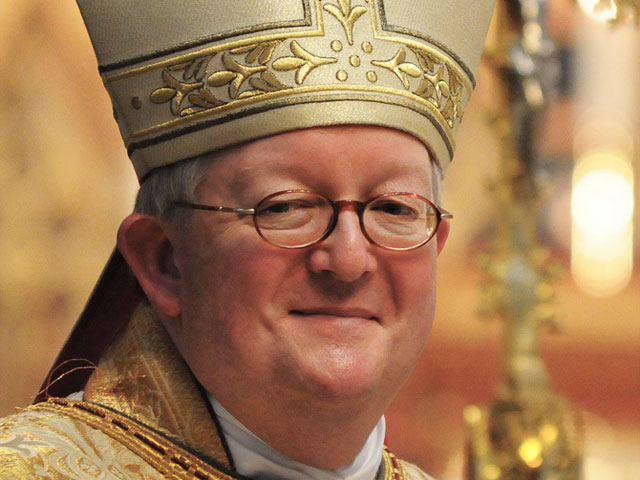Does anyone remember why the powerful Cardinal Joseph Ratzinger selected the name Benedict XVI when he was elected pope?
I may be wrong on this, but here is what I remember.
Yes, his choice was a salute to an earlier pope, who helped steer the church through the crisis of World War I. And, yes, the famous St. Benedict is considered the key figure in the history of Western monasticism and, with his vision of strong communities of faith, played a big role in the protection and preservation of key elements of what was good in the endangered European culture of his day.
What was Ratzinger — a man with deep roots into the chilly, liberal culture of academic liberalism in German — actually saying with the choice of “Benedict” as a name? Was he (a) saying that the old Catholic Europe could be saved or (b) that elements of a fading Christian culture could be preserved in a time of distress and decline?
That’s the question that lingered in my mind as I read the Los Angeles Times piece that ran under a magisterial double-decker headline that proclaimed:
Roman Catholic Church feels Europe slipping from its hands
The issue of gay rights is just one in which the church is losing its influence, and its privileged status is increasingly called into question
This piece of news — or news analysis — opens with this somber and symbolic anecdote:
VATICAN CITY — The timing said it all.
A smiling Pope Benedict XVI had just wrapped up an official visit to Portugal in May 2010, during which he praised Catholic organizations striving to protect families based on “the indissoluble marriage between a man and a woman.”
But barely 72 hours after the pontiff flew home, the president of Portugal declared that he would sign a bill allowing gay and lesbian couples to wed. With Spain having granted such rights five years earlier, the move turned the entire Iberian Peninsula, historically a Catholic stronghold, into an unlikely hitching post for homosexuals.
“That shows the importance of the pope’s views, of the Catholic Church’s views, on same-sex marriage in terms of domestic politics,” Paulo Corte-Real, a gay rights activist and economics professor, recalled wryly.
More than just an embarrassment, the turn of events was emblematic of the fact that the Roman Catholic Church, once a mighty force on its home continent, is weaker in modern Europe than ever before, its influence ebbing, its privileged status increasingly called into question.
That’s the overture: The following is the thesis statement.
The now-retired Benedict spent much of his eight-year papacy trying to revive Catholicism here on its home turf. But the cardinals now assembled at the Vatican to pick his successor face a grim reality: The campaign has failed to reverse, or even just to halt, Europe’s slide toward what church leaders regard as godless humanism. …
For many Europeans, the relevance of the church, both for their personal and their public lives, is a thing of the past.
Here is my question, as we all sit and wait for white smoke in Rome: Is this an accurate statement of the work that Pope Benedict XVI was attempting?
It is one thing to say that he wanted to revive Catholicism. It is something else to say that he wanted to revive elements of Catholic tradition and to build stronger Catholic institutions and communities in what he viewed as an increasingly post-Christian Europe. If the latter was his goal, then it is possible to say that the pope was grimly embracing the reality that Catholicism was losing political clout.
Ratzinger knew liberal Europe from the inside. Was he really thinking — as is the thesis of this piece — that he could turn back the clock to an earlier era?
Frankly, I thought that part of the piece was bizarre and simply inaccurate. Once again, journalists were thinking in terms of politics, alone, and not in terms of doctrine, sacraments and church life.
It was even stranger when, just a few lines later, the Times team states some questions that are perfectly compatible with Pope Benedict XVI’s sobering view of Europe and its future:
The church’s declining fortunes in Europe pose tough choices to the cardinals gathering in their secretive conclave. Should they maintain the emphasis on shoring up the faith in the Vatican’s backyard, or concentrate and increase their resources in places where the church is actually growing, such as Africa and Asia? Should they take an even more dramatic step (and a deep breath) and elect a new pope from one of those regions?
In other words, strive to preserve what can be saved in a post-Christian Europe, while looking for an era of New Evangelization in parts of the world where the spiritual waters are warmer?
That sounds so, so — Benedictine.
So, Catholic readers, did the Los Angeles Times simply misunderstand what Pope Benedict XVI was trying to do? Did the newspaper misunderstand what he thought was possible in postmodern Europe?











